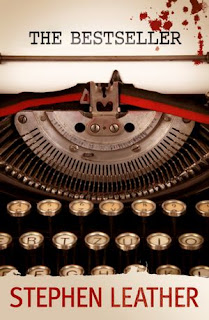Consider this paragraph by
Edward Tenner in
The Atlantic:
If you were trying to discredit [the] self-publishing model
aimed at eliminating conventional publishers as obsolete “gatekeepers,”
relying instead on crowd-sourced reviews, what would you do? Here’s a
thought: Why not work from within?
The sentiment hints at the deep resentment, distrust, and paranoia
'self-pubbers' harbor against the establishment, traditional
publishing, 'gatekeepers' being a pejorative term for editors and
publishers who, in the eyes of vanity press proponents, refuse to recognize truly great works of literature. But
more than that, the article documents a few authors manipulating the
publishing industry.
Some time back, Stephen Kelner and I among others took part in a
LinkedIn discussion about self-publishing 'democratization', another
code word aimed at wrenching righteous control from the publishing
barons. Respected reputable authors thought it scandalous that
fly-by-night entrepreneurs offered
'positive reviews' for sale, but
self-pubbers, many who put in days, even weeks of labor (oops, my sarcasm is dripping), saw nothing
wrong and everything right with buying
positive reviews, part of their
weaponry in their battle to bring down
the giant publishing industry conspiracy. Why risk a tough but possibly honest
reviewer like
Liz Bourke?
Some paid
reviewers advertise blatantly, but other don't. It's not unusual
to see 'full service' self-publishing consultants and some of these
include
positive
reviews as part of their services packages.
But wait… there's more. Once mainline publishers understood what
the vanity press knew all along– that some people will pay actual
money for the privilege of being seen in print– publishers began to
cash in. Harlequin was among the first, selling their rejected authors
on the pay-to-publish idea. The RWA and MWA forced them to alter their
business model– they now outsource that end of their
business– but the profit motive is still there.
Kirkus and
Amazon
followed– they sell
reviews although they don't guarantee a happy
result like
Darcie
Chan's.
It turns out many of the so-called indie self-pubbers were shocked,
shocked I tell you, that vanity presses don't provide the publicity and
marketing like the big houses that they worked so hard to bring to
their knees. Publishing houses were worse than ever suspected– surely
there had to be collusion and conspiracy if some authors were not only
published for free, but were actually
paid. But eBooks… eBooks
could set you free. As
Christopher
Moore said,
[T]he eBook business was never about books. It hides in the
book world; wants to be accepted as a book world that readers and
authors can trust.
In Review
Not so long ago, romance author and Highland Press owner Deborah MacGillivray built up a
Yahoo group called Ladies in Waiting whose purpose was to
promote
MacGillivray's novels and trash naysayers. The group used
'clickies' to deride any negative or even tepid Amazon
reviews, triggering Amazon's computers to nullify the mildest of critical reviewers and disable their accounts.
Romance author Emily Giffin (the one who whines about being only #2 on
the
New York Times Bestseller List) and her clan reportedly
attacked a couple of reviewers– one professional,
one not– for daring to besmirch one of her books with
1-star
reviews, then demanded the reviewers remove them for their own
safety. Legions of fans began harassing reviewers to the point of
death threats,
yet the hubris of Griffin's response implied the fault lay with the victim– the reviewer.
I was struck by one thing that seems to have escaped the notice of
most. Apparently Amazon quietly de-linked those reviews. Was it to
protect the reviewers or protect sales of a top-selling author?
More recently, we learn John Locke, the first self-pubber to sell more
than a million books on
Amazon, wasn't so Indy after all. Similar to those
exposed by
New York Times'
David Streitfeld and spotlighted by our friends
Lee Goldberg and
Leighton Gage,
Steve Mosby,
Dan Waddell,
Stuart Neville,
Jeri Westerson, and spy master
Jeremy Duns among others, Locke paid for more than
4500 scintillating
fake reviews to pave his way onto the bestsellers list. A former
door-to-door salesman, Locke said,
Reviews are the smallest piece of being successful, but
it’s a lot easier to buy them than cultivating an audience.
Like
Kevin Wignall, my greater concern isn't about Locke buying votes who merely
manipulated the system, it's the playground bullying of MacGillivray
and Griffin, authors who've come to represent the darkest side of this
new world of ePublishing.

Switch
back to the UK where literary bury-your-critics has become a
rampant low art
form, symbolized by historian
Orlando Figes. Yet another
scandal is brewing. Top best-selling author
Stephen Leather not only admits to fabricating positive reviews for his
own novel, some allege he set up shell reviewers ('
socks') to trash
competitors while others accuse him of relentlessly
bullying those
who got in his way. The
modus operandi isn't unlike suspicions
leveled against
Roger J. Ellory and
Matt Lynn, the latter a business journalist who
should know better.
I don't know the men and I hope the accusations are wrong, but I smell a
cesspool when a stench reaches my
nostrils. As much as I detest vanity presses that exploit
desperate wannabees, at least CreateSpace, AuthorHouse, and
PublishAmerica offer a seamless if hollow illusion of being published.
Clients who consider themselves ground-breaking 'indies' must
comprehend
they're preyed upon even as they dream they're striking blows for that
illusive 'democratization', in what author David Hewson calls the '
phony revolution'. The successful don't buy
one
review, they buy
thousands,
then, if they don't like tepid reviews, they kick the crap out of
critics.
Some in the self-pub trenches will be disappointed, but others will
say, "Damn! So
that's how it's done!" While bad reviews can be disturbing, they don't have to be a death
sentence. Jason Boog surveyed bestsellers, some with up to hundreds of
1-star
reviews, with
surprising results.
 |
| Stephen Leather |
Peculiarly to many of us, Leather and his ilk not only seem unfazed by
the revelations, but they appear proud of their accomplishments. To
bring out the
buying fools, they seed the mines with fool's gold and kneecap
challengers. They aren't so much sock-puppets as puppet-masters. As
they pointed out, their efforts might be unethical, but they aren't
illegal– they're calculated business decisions. All they did was
ruthlessly
manipulate a willing market to '
create a buzz' and become tax-paying
millionaires.
This rough, raw, rapacious law of the land isn't about
the books. It's about connivers who, in the words of
Christopher
Moore, have become 'superior tribe accumulators'. They bought
a larger tribe, and the rest of us fail to understand:
[Once] books were read and admired across class, religious and
political divides… writers didn’t write down to their audience. And
that audience was book orientated, cohesive, and quality minded. In
their day, books were an important part of the intellectual domain that
educated people were expected to read and expected those in their
circle to read. When the content of books were the subject of
conversation.
That time has gone.
Perhaps true, but still, I lament…
Fool us once, shame on them. Fool a million, shame on us. Shame.
Note: As with all
articles in
SleuthSayers, the above are opinions of the author based upon the
latest available research and alleged actions of persons involved.
Parties are considered innocent until proven otherwise.
 * Police went to a car lot where an “irate customer,”
upset over his recently purchased car, threatened to run over the sales
manager. Store employees said the angry customer “circled the parking lot,
stopping in front of the sales manager, began revving up the engine causing
excessive smoke, and lurched forward stopping short of striking the sales
manager.” The manager in question was afraid that the unsatisfied customer would
return “because of his explosive demeanor.”
* Police went to a car lot where an “irate customer,”
upset over his recently purchased car, threatened to run over the sales
manager. Store employees said the angry customer “circled the parking lot,
stopping in front of the sales manager, began revving up the engine causing
excessive smoke, and lurched forward stopping short of striking the sales
manager.” The manager in question was afraid that the unsatisfied customer would
return “because of his explosive demeanor.” * When a man had his sister’s cell phone turned off “due to payment issues,” the sister
got mad and threatened to vandalize his car. The sister, in turn, told officers
that the brother “had been leaving threatening letters on the windshield of her
vehicle.” Police told them to stop leaving one another messages.
* When a man had his sister’s cell phone turned off “due to payment issues,” the sister
got mad and threatened to vandalize his car. The sister, in turn, told officers
that the brother “had been leaving threatening letters on the windshield of her
vehicle.” Police told them to stop leaving one another messages.











